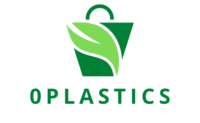Plastic Peril: A Looming Threat to Human Health
Our reliance on plastic, once hailed for its convenience, now casts a long shadow over human health. Its insidious reach extends throughout its entire lifecycle, from extraction to disposal, jeopardizing our well-being in unforeseen ways.
Chemical Cocktail: Plastics are laden with additives like Bisphenol A (BPA) and phthalates, known endocrine disruptors. These mimic hormones, throwing our delicate hormonal balance off-kilter. This can lead to reproductive issues, including infertility, early puberty, and even certain cancers. Children, whose bodies are still developing, are particularly vulnerable.
Microplastic Madness: Plastic breaks down into tiny fragments called microplastics, ubiquitous in our environment. They infiltrate our food and water, accumulating in our bodies. Studies suggest they may trigger inflammation, damage cells, and contribute to chronic diseases like cancer, respiratory problems, and even autoimmune disorders. The full extent of their harm is still being unearthed, but the picture is far from reassuring.
Seafood Scam: Microplastics also hitchhike on marine life, becoming an unwanted part of our seafood meals. We ingest not only the tiny plastic particles but also the pollutants they absorb from the contaminated ocean. This exposes us to a cocktail of toxins, jeopardizing our gut health and potentially impacting our nervous, immune, and endocrine systems.
From Cradle to Grave: The health risks of plastic extend beyond its final form. Extracting the fossil fuels to make plastic releases harmful pollutants into the air and water, impacting respiratory health and contributing to climate change, which itself presents a cascade of health threats. Waste plastic often ends up in landfills or incinerators, emitting toxic fumes that pollute the air and soil, further exposing us to harmful chemicals.
Facing the Plastic Peril: The growing body of evidence demands our attention. We must transition to sustainable alternatives, invest in research to understand the full scope of plastic’s health impacts, and hold polluters accountable. Embracing reusable alternatives, choosing plastic-free options, and demanding stricter regulations are crucial steps. By acting now, we can break free from plastic’s grip and secure a healthier future for ourselves and generations to come.
